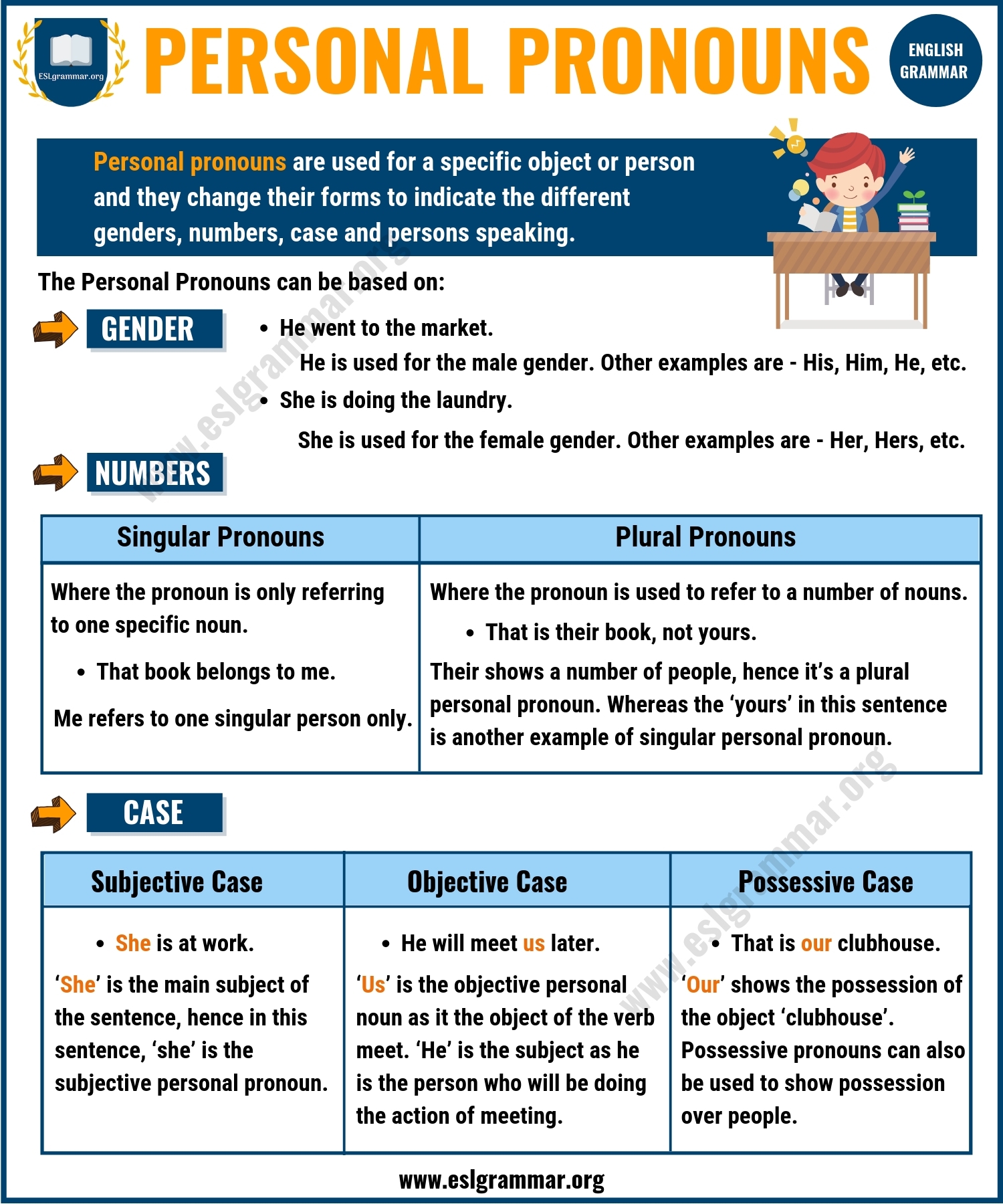Personal nouns are words that refer to specific people or things. They are used to identify individuals and can vary in gender, number, and case. Understanding personal nouns is essential for effective communication in any language.
Personal nouns can be categorized into three main types: first person, second person, and third person. First person personal nouns refer to the speaker or writer, second person personal nouns refer to the person being spoken to or written to, and third person personal nouns refer to someone or something else.
Examples of Personal Nouns:
1. First Person: I, me, mine, we, us, ours
First person personal nouns are used when the speaker or writer is referring to themselves or a group they are a part of. For example, “I am going to the store” or “We won the game.”
2. Second Person: you, your, yours
Second person personal nouns are used when addressing someone directly. For example, “Can you pass me the salt?” or “Your car is parked in the wrong spot.”
3. Third Person: he, she, it, him, her, his, hers, its, they, them, their, theirs
Third person personal nouns are used when referring to someone or something other than the speaker or the person being spoken to. For example, “She is a talented musician” or “They live in that house.”
Personal nouns play a crucial role in sentence structure and help clarify the relationships between different elements in a sentence. By using the appropriate personal nouns, speakers and writers can convey their intended meaning clearly and effectively.
It is important to remember that personal nouns can change form based on their role in a sentence, such as subject, object, or possessive. Paying attention to these nuances can help improve your language skills and enhance your communication abilities.
In conclusion, personal nouns are an essential part of language and communication. By understanding and using personal nouns correctly, you can express yourself more clearly and effectively in any conversation or written text. Practice identifying and using personal nouns in your everyday language to improve your communication skills and become a more proficient speaker or writer.
